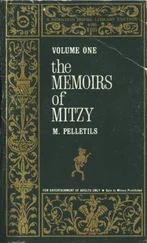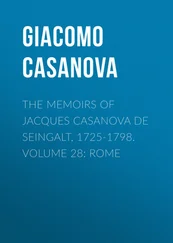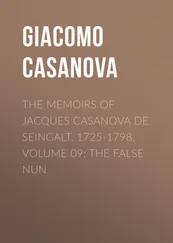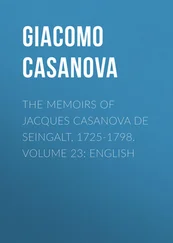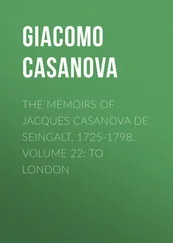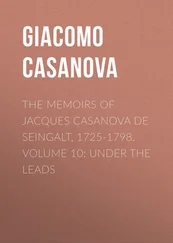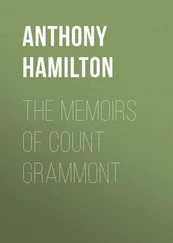Anthony Hamilton - The Memoirs of Count Grammont – Volume 01
Здесь есть возможность читать онлайн «Anthony Hamilton - The Memoirs of Count Grammont – Volume 01» — ознакомительный отрывок электронной книги совершенно бесплатно, а после прочтения отрывка купить полную версию. В некоторых случаях можно слушать аудио, скачать через торрент в формате fb2 и присутствует краткое содержание. Жанр: foreign_antique, foreign_prose, на английском языке. Описание произведения, (предисловие) а так же отзывы посетителей доступны на портале библиотеки ЛибКат.
- Название:The Memoirs of Count Grammont – Volume 01
- Автор:
- Жанр:
- Год:неизвестен
- ISBN:нет данных
- Рейтинг книги:5 / 5. Голосов: 1
-
Избранное:Добавить в избранное
- Отзывы:
-
Ваша оценка:
- 100
- 1
- 2
- 3
- 4
- 5
The Memoirs of Count Grammont – Volume 01: краткое содержание, описание и аннотация
Предлагаем к чтению аннотацию, описание, краткое содержание или предисловие (зависит от того, что написал сам автор книги «The Memoirs of Count Grammont – Volume 01»). Если вы не нашли необходимую информацию о книге — напишите в комментариях, мы постараемся отыскать её.
The Memoirs of Count Grammont – Volume 01 — читать онлайн ознакомительный отрывок
Ниже представлен текст книги, разбитый по страницам. Система сохранения места последней прочитанной страницы, позволяет с удобством читать онлайн бесплатно книгу «The Memoirs of Count Grammont – Volume 01», без необходимости каждый раз заново искать на чём Вы остановились. Поставьте закладку, и сможете в любой момент перейти на страницу, на которой закончили чтение.
Интервал:
Закладка:
Count Anthony Hamilton
The Memoirs of Count Grammont – Volume 01
BIOGRAPHICAL SKETCH OF ANTHONY HAMILTON
Anthony Hamilton, the celebrated author of the Grammont Memoirs, much cannot now be with certainty known.
[For uniformity's sake the writer of this sketch has followed the Memoirs in the spelling of this name; but he thinks it necessary to observe that it should be Gramont, not Grammont.]
The accounts prefixed to the different editions of his works, down to the year 1805, are very imperfect; in that year a new, and, in general, far better edition than any of the preceding ones, was published in Paris, to which a sketch of his life was also added; but it contains rather just criticisms on his works, than any very novel or satisfactory anecdote concerning himself. It is not pretended here to gratify literary curiosity as fully as it ought to be, with regard to this singular and very ingenious man; some effort, however, may be made to communicate a few more particulars relative to him, than the public has hitherto, perhaps, been acquainted with.
Anthony Hamilton was of the noble family of that name: Sir George Hamilton, his father, was a younger son of James, Earl of Abercorn, a native of Scotland. His mother was daughter of Lord Thurles, and sister to James, the first Duke of Ormond; his family and connections therefore, on the maternal side, were entirely Irish. He was, as well as his brothers and sisters, born in Ireland, it is generally said, about the year 1646; but there is some reason to imagine that it was three or four years earlier. The place of his birth, according to the best family accounts, was Roscrea, in the county of Tipperary, the usual residence of his father when not engaged by military or public business.
[In September, 1646, Owen O'Neale took Roscrea, and, as Carte says, "put man, woman, and child to the sword, except Sir George Hamilton's lady, sister to the Marquis of Ormond, and some few gentlewomen whom he kept prisoners." No family suffered more in those disastrous times than the house of Ormond. Lady Hamilton died in August, 1680, as appears from an interesting and affecting letter of her brother, the Duke of Ormond, dated Carrick, August 25th. He had lost his noble son, Lord Ossory, not three weeks before.]
It has been always said, that the family migrated to France when Anthony was an infant; but this is not the fact: "Sir George Hamilton," says Carte, "would have accompanied his brother-in-law, the Marquis of Ormond, to France, in December, 1650: but, as he was receiver-general in Ireland, he stayed to pass his accounts, which he did to the satisfaction of all parties, notwithstanding much clamour had been raised against him." When that business was settled, he, in the spring of 1651, took Lady Hamilton and all his family to France, and resided with Lord and Lady Ormond, near Caen, in Normandy,
[Hence possibly Voltaire's mistake in stating that Hamilton was born at Caen, in his Catalogue des Ecrivains du Siecle de Louis XIV.]
in great poverty and distress, till the Marchioness of Ormond, a lady whose mind was as exalted as her birth, went over to England, and, after much solicitation obtained two thousand pounds a-year from her own and, her husband's different estates in Ireland. This favour was granted her by Cromwell, who always professed the greatest respect for her. The Marchioness resided in Ireland, with the younger part of her family, from 1655 till after the Restoration; while the Marquis of Ormond continued for a considerable part of that period with his two sisters, Lady Clancarty and Lady Hamilton, at the Feuillatines, in the Faubourg St. Jacques, in Paris.
It appears from a letter of the Marquis to Sir Robert Southwell, that, although he himself was educated in the Protestant religion, not only his father and mother, but all his brothers and sisters, were bred, and always continued, Roman Catholics. Sir George Hamilton also, according to Carte,
[That historian states that the king (Charles I.) deprived several papists of their military commissions, and, among others, Sir George Hamilton, who, notwithstanding, served him with loyalty and unvarying fidelity.]
was a Roman Catholic; Anthony, therefore, was bred in the religion of his family, and conscientiously adhered to it through life. He entered early into the army of Louis XIV., as did his brothers George, Richard, and John, the former of whom introduced the company of English gens d'armes into France, in 1667, according to Le Pere Daniel, author of the History of the French Army, who adds the following short account of its establishment: Charles II., being restored to his throne, brought over to England several catholic officers and soldiers, who had served abroad with him and his brother, the Duke of York, and incorporated them with his guards; but the parliament having obliged him to dismiss all officers who were Catholics, the king permitted George Hamilton to take such as were willing to accompany him to France, where Louis XIV. formed them into a company of gens d'armes, and being highly pleased with them, became himself their captain, and made George Hamilton their captain-lieutenant: – [They were composed of English, Scotch, and Irish.] Whether Anthony belonged to this corps I know not; but this is certain, that he distinguished himself particularly in his profession, and was advanced to considerable posts in the French service.
Anthony Hamilton's residence was now almost constantly in France. Some years previous to this he had been much in England, and, towards the close of Charles II.'s reign, in Ireland, where so many of his connections remained. When James II. succeeded to the throne, the door being then opened to the Roman Catholics, he entered into the Irish army, where we find him, in 1686, a lieutenant-colonel in Sir Thomas Newcomen's regiment. That he did not immediately hold a higher rank there, may perhaps be attributed to the recent accession of the king, his general absence from Ireland, the advanced age of his uncle, the Duke of Ormond, and, more than all, perhaps, to his Grace's early disapprobation of James's conduct in Ireland, which displayed itself more fully afterwards, especially in the ecclesiastical promotions.
Henry, Earl of Clarendon, son to the lord-chancellor, was at that time lord-lieutenant of Ireland, and appears, notwithstanding his general distrust and dislike of the Catholics, to have held Anthony Hamilton in much estimation: he speaks of his knowledge of, and constant attention to, the duties of his profession; his probity, and the dependance that was to be placed on him, in preference to others of the same religious persuasion, and, in October, 1686, wrote to the Earl of Sunderland respecting him, as follows: "I have only this one thing more to trouble your lordship with at present, concerning Colonel Anthony Hamilton, to get him a commission to command as colonel, though he is but lieutenant-colonel to Sir Thomas Newcomen, in regard of the commands he has had abroad: and I am told it is often done in France, which makes me hope it will not be counted an unreasonable request. I would likewise humbly recommend to make Colonel Anthony Hamilton a privy-councillor here." Lord Clarendon's recommendations were ultimately successful: Hamilton was made a privy-councillor in Ireland, and had a pension of L200 a year on the Irish establishment; and was appointed governor of Limerick, in the room of Sir William King, notwithstanding he had strongly opposed the new-modelling of the army by the furious Tyrconnel. In the brief accounts which have been given of his life, it is said that he had a regiment of infantry; but, though this is very probable, there is no mention whatever of his commanding a regiment in the lists published of King James's army, which are supposed to be very accurate: he is indeed set down among the general officers.
Читать дальшеИнтервал:
Закладка:
Похожие книги на «The Memoirs of Count Grammont – Volume 01»
Представляем Вашему вниманию похожие книги на «The Memoirs of Count Grammont – Volume 01» списком для выбора. Мы отобрали схожую по названию и смыслу литературу в надежде предоставить читателям больше вариантов отыскать новые, интересные, ещё непрочитанные произведения.
Обсуждение, отзывы о книге «The Memoirs of Count Grammont – Volume 01» и просто собственные мнения читателей. Оставьте ваши комментарии, напишите, что Вы думаете о произведении, его смысле или главных героях. Укажите что конкретно понравилось, а что нет, и почему Вы так считаете.

